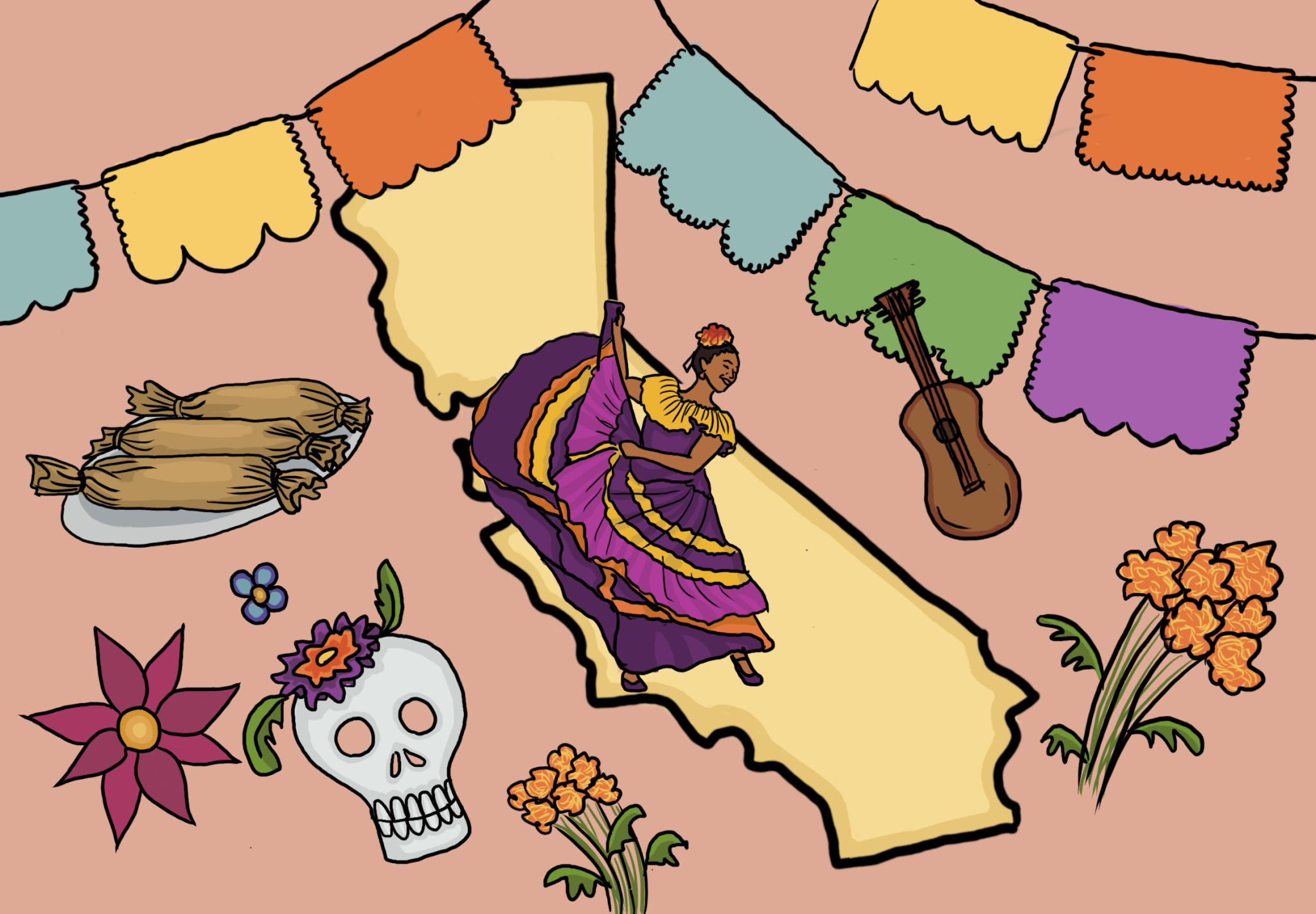When looking at America’s Latinx community, it is difficult not to talk about California. According to the Public Policy Institute of California, one in every four Latinx Americans live in the “Golden State.” Latinx Californians are the largest racial/ethnic group in the state, with 99 percent of Latinx immigrants coming from Latin America, and 77 percent from Mexico alone.
Latinx influence in California goes beyond statistics and demographics. It covers a wide range of cultural impacts as well.
Among these are art, language, and food: pillars of culture. Spanish is the second most spoken language in the state. The cuisine of Cal-Mex (California-Mexican) is one of the most common and recognizable aspects. The architecture and landscape of the state is closely linked to its Latinx influence and history.
California’s Latinx history began with Spanish colonization in the eighteenth century. Spanish settlers established missions and presidios throughout California, which laid the foundation for Latinx influence in the region. This time period also introduced Catholicism and Spanish architecture, which continue to shape California’s culture today.
The state later became a part of the Republic of Mexico in 1822. 24 years later, in 1846, the United States invaded California, and after the two-year Mexican-American war, the state became a part of the U.S. through the Treaty of Guadalupe Hidalgo, in 1848. This
history is what California is; it started a chain of reaction for the events that followed. Most young students in the state learn about its history at some point in elementary school, ranging from the Gold Rush, to the missions, to the history of California’s government. Unfortunately, few elementary curricula dive deeper into the overlooked influence of Latinx culture in California.
There are many lesser-known parts of Latinx history that are not taught or recognized frequently, with just one example being LGBTQ Latinx Activism. Figures such as Sylvia Rivera, a Puerto Rican American activist, and José Sarria, a Colombian American activist, played major roles in the fight for LGBTQ rights.
Rivera, one of the instigators of the transformative Stonewall Riots in New York City, was also a founding member of the Gay Liberation Front as well as the Gay Activists Alliance.
Sarria founded the Imperial Court of San Francisco, which is now called the International Court System, an association of charitable organizations that raises money for LGBTQ causes. Their impacts were ones of significance, despite the fact that they’re not often taught about in standard course curricula.
Another example is the water and land rights movements, often associated with Cesar Chavez. His name is widely recognized across the country, assigned to a variety of landmarks. However the layers of his story, and the stories of many others, are not as widely acknowledged. Chavez sounded the alarm over the dangers of pesticides, but it never gained the same amount of attention as his previous campaigns.
It is difficult to pinpoint key historical events and aspects of Latinx culture in California because so many are closely linked to the foundation and building of the state. What is clear is that there are many reasons to celebrate and appreciate the vibrancy of Latinx culture in California, whether it is through festivals such as Dia de los Muertos, Cinco de Mayo, or the aspects of the entertainment industry that have been impacted.
Latinx culture has undoubtedly played a key role in the development of California’s cultural, social, and political landscape, and continues to do so. America is often referred to as a melting pot, and within the melting pot of California, Latinx influence is indubitably felt. The culture and history is a contribution to the state’s vibrant multicultural fabric, and can be seen in various aspects of daily life ranging from art to food to politics, all of which showcase the enduring influences of Latinx communities in California. Understanding the importance and significance of this is critical to properly valuing Latinx Californians.





